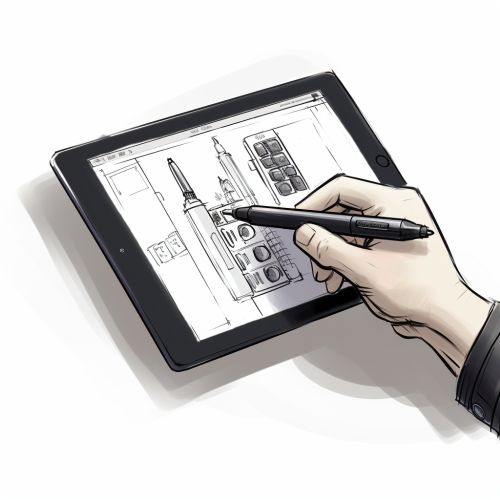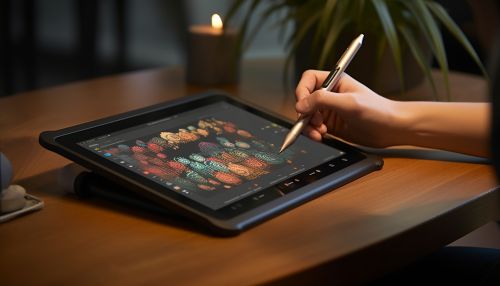Personal digital assistant
Overview
A Personal Digital Assistant (PDA), also known as a handheld PC, is a mobile device that functions as a personal information manager. PDAs were largely discontinued in the early 2010s as the widespread adoption of highly capable smartphones, particularly those based on iOS and Android, began to take hold. However, PDAs are still used in certain industries, such as logistics and warehousing.


History
The term PDA was first used on January 7, 1992 by Apple Computer CEO John Sculley at the Consumer Electronics Show in Las Vegas, Nevada, referring to the Apple Newton. In the context of PDA devices, a PDA is a handheld device that combines computing, telephone/fax, Internet and networking features. A typical PDA can function as a cellular phone, fax sender, web browser and personal organizer. PDAs may also be referred to as palmtops, hand-held computers and pocket computers.
Features
PDAs typically include a touchscreen for entering data, a memory card slot for data storage, and IrDA, Bluetooth and/or Wi-Fi for connectivity. Nearly all PDAs can also connect to the Internet via Wi-Fi or Wireless Wide Area Networks. Most PDAs come with the ability to synchronize with a computer, enabling data transfer. This is typically done through a proprietary dock or cable.
Operating Systems
PDAs run on a variety of operating systems, including Palm OS, BlackBerry OS, Windows Mobile, and the more recent Android and iOS. Each operating system has its strengths and weaknesses, and specific PDAs were designed around these operating systems to maximize their benefits.
Applications
PDAs have many uses in the professional world and in the personal lives of many people. They are used in commerce, government and academia, in jobs such as surveying, inventory control, data collection and field research. They are also used for personal uses such as calendar appointments, office applications, and playing games.
Future
With the advent of smartphones, PDAs are no longer commonly used by the general public. However, they are still used in certain industries and professions where their specific features are required. It remains to be seen how the PDA will evolve in the future.
